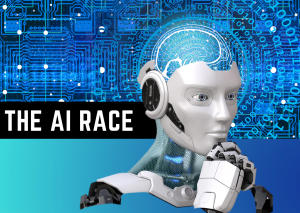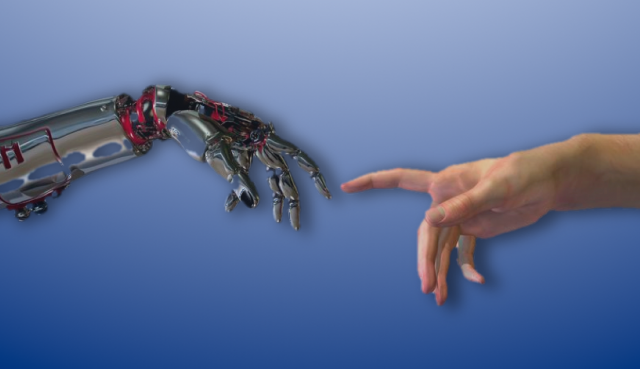In October of 2020, the Office of the Prime Minister of Iceland assembled a five-person committee tasked with authoring an AI policy for Iceland. Part of the process included soliciting comments from the public. In March IIIM submitted a 14-page report advising the committee on the subject. The committee has now delivered a final report that resulted from its work, which outlines policy suggestions. The Prime Minister plans to present the report to parliament later this month. Continue reading Iceland Has a New AI Policy
IIIM News
News about the institution, its research & recent advances
How Iceland Can Benefit from AI: IIIM Delivers Report to PM’s Committee on AI Policy

The Office of the Prime Minister of Iceland put together last year a committee to author an AI policy for Iceland. In preparation the document that is to be delivered by the committee later this spring, the committee has called for an open commentary from the general public. Earlier this week the Icelandic Institute for Intelligent Machines delivered a report on the Institute’s advice to the Prime Minister’s Office about Iceland and the 4th Industrial Revolution. The 14 page report includes answers to the committee’s questions that it specifically requested in commentary on, Continue reading How Iceland Can Benefit from AI: IIIM Delivers Report to PM’s Committee on AI Policy
Featured Projects
 Self-Explaining AI Systems. In the quest to make “explainable AI,” which focuses primarily on technologies based on deep neural networks (DNNs), many researchers seem to have forgotten that the word ‘intelligence’ is in the title of their field. Why should humans strive to explain these systems? Why not have the systems do it themselves? The reason may very well be that to do so would necessitate going outside the comfort zone of modern applied AI technologies. Unlike almost everyone else, this is precisely what IIIM is doing in the project Self-Explaining AI Systems. We are building a new kind of AI that not only can learn unsupervised, but learns in a way that it can explain its own knowledge — to itself as well as to its designers.
Self-Explaining AI Systems. In the quest to make “explainable AI,” which focuses primarily on technologies based on deep neural networks (DNNs), many researchers seem to have forgotten that the word ‘intelligence’ is in the title of their field. Why should humans strive to explain these systems? Why not have the systems do it themselves? The reason may very well be that to do so would necessitate going outside the comfort zone of modern applied AI technologies. Unlike almost everyone else, this is precisely what IIIM is doing in the project Self-Explaining AI Systems. We are building a new kind of AI that not only can learn unsupervised, but learns in a way that it can explain its own knowledge — to itself as well as to its designers.
 A New Methdology for Analyzing the Societal Effects of the Fourth Industrial Revolution. The interplay between technology development, technology adoption, and societal change is a complex one, working over decades, centuries and millenia. The changes expected in the coming years and decades due to artificial intelligence might be the fastest and largest in the history of the human species. How can we prepare for such change? Since 2020 IIIM has been working on a new methodology for predicting the potential changes certain advances in automation technology might have on society. We see this as an important contribution for preparing the Icelandic government – but also governments elsewhere – for necessary policy changes in the coming years to meet the demands, and benefit from the opportunities, that advanced automation through artificial intelligence brings.
A New Methdology for Analyzing the Societal Effects of the Fourth Industrial Revolution. The interplay between technology development, technology adoption, and societal change is a complex one, working over decades, centuries and millenia. The changes expected in the coming years and decades due to artificial intelligence might be the fastest and largest in the history of the human species. How can we prepare for such change? Since 2020 IIIM has been working on a new methodology for predicting the potential changes certain advances in automation technology might have on society. We see this as an important contribution for preparing the Icelandic government – but also governments elsewhere – for necessary policy changes in the coming years to meet the demands, and benefit from the opportunities, that advanced automation through artificial intelligence brings.
 Generating Environmentally Friendly Industrial Coating Compounds. The colors that adorn airplanes; the outer hulls of ships; the bright surfaces of factory robots — all of these are the product of chemistry, relying on the advanced chemical formulast for industrial surface coatings. Some of the chemicals are not very environmentally friendly. Using advanced AI technology, IIIM is working with Rescoll in France to apply AI technology to improve the environmental friendliness of this chemistry. In the project, new techniques will be developed that allow the AI to invent improved, even brand-new, chemical compounds and processes for achieving this goal.
Generating Environmentally Friendly Industrial Coating Compounds. The colors that adorn airplanes; the outer hulls of ships; the bright surfaces of factory robots — all of these are the product of chemistry, relying on the advanced chemical formulast for industrial surface coatings. Some of the chemicals are not very environmentally friendly. Using advanced AI technology, IIIM is working with Rescoll in France to apply AI technology to improve the environmental friendliness of this chemistry. In the project, new techniques will be developed that allow the AI to invent improved, even brand-new, chemical compounds and processes for achieving this goal.
Europe Aims to Catch Up in AI Race
 As Europe is currently facing a competitive disadvantage in the field of AI, especially in data access, the European Parliament decided to push on digitalization efforts. To officially launch a respective debate, the European Commission published a White Paper on Artificial Intelligence last February. It is beyond doubt that Europe must become more active in its digitalization progress if it wishes to place its countries among the top competitors in the AI space: According to Stanford University’s AI Index report, Continue reading Europe Aims to Catch Up in AI Race
As Europe is currently facing a competitive disadvantage in the field of AI, especially in data access, the European Parliament decided to push on digitalization efforts. To officially launch a respective debate, the European Commission published a White Paper on Artificial Intelligence last February. It is beyond doubt that Europe must become more active in its digitalization progress if it wishes to place its countries among the top competitors in the AI space: According to Stanford University’s AI Index report, Continue reading Europe Aims to Catch Up in AI Race


